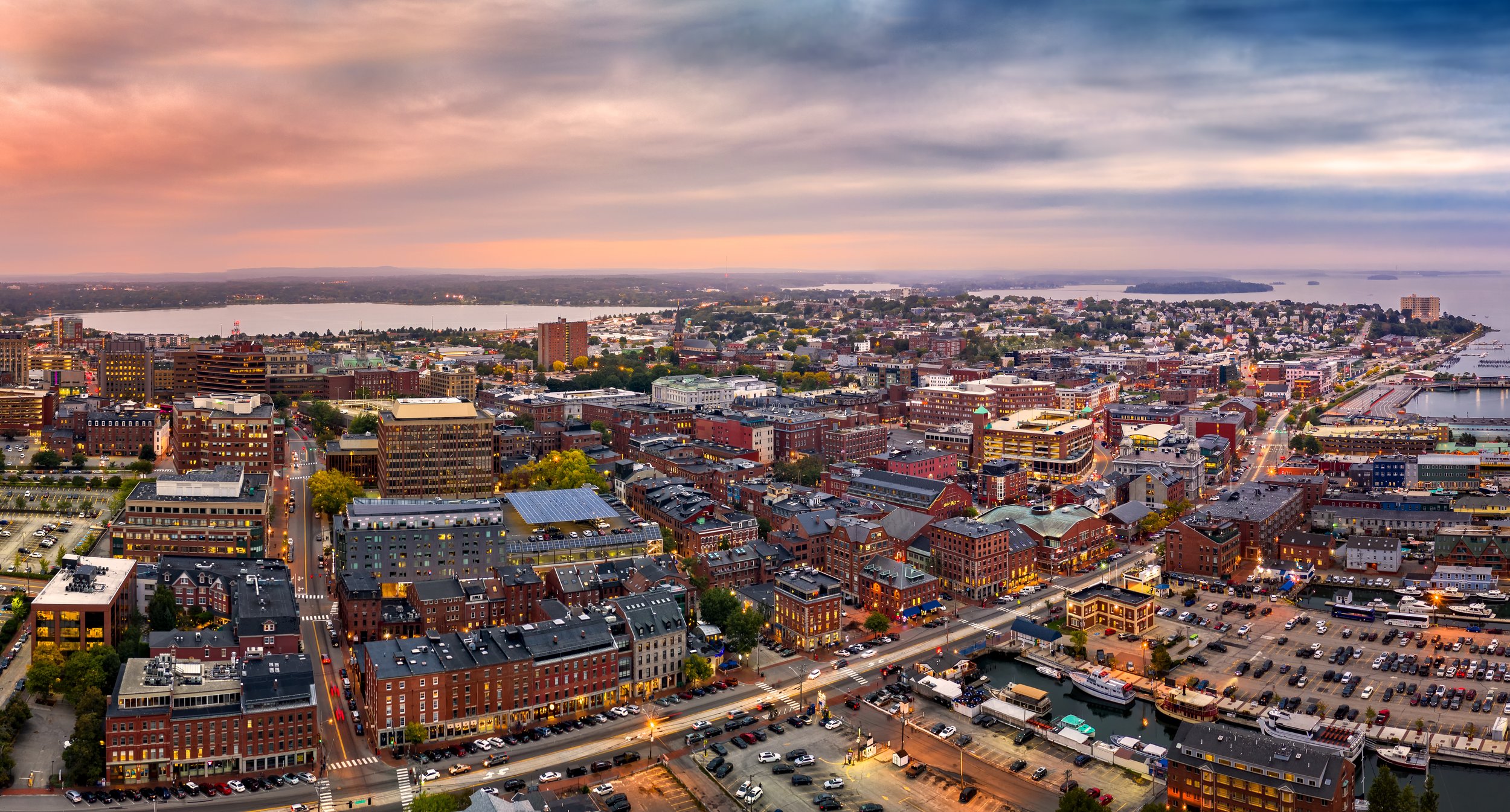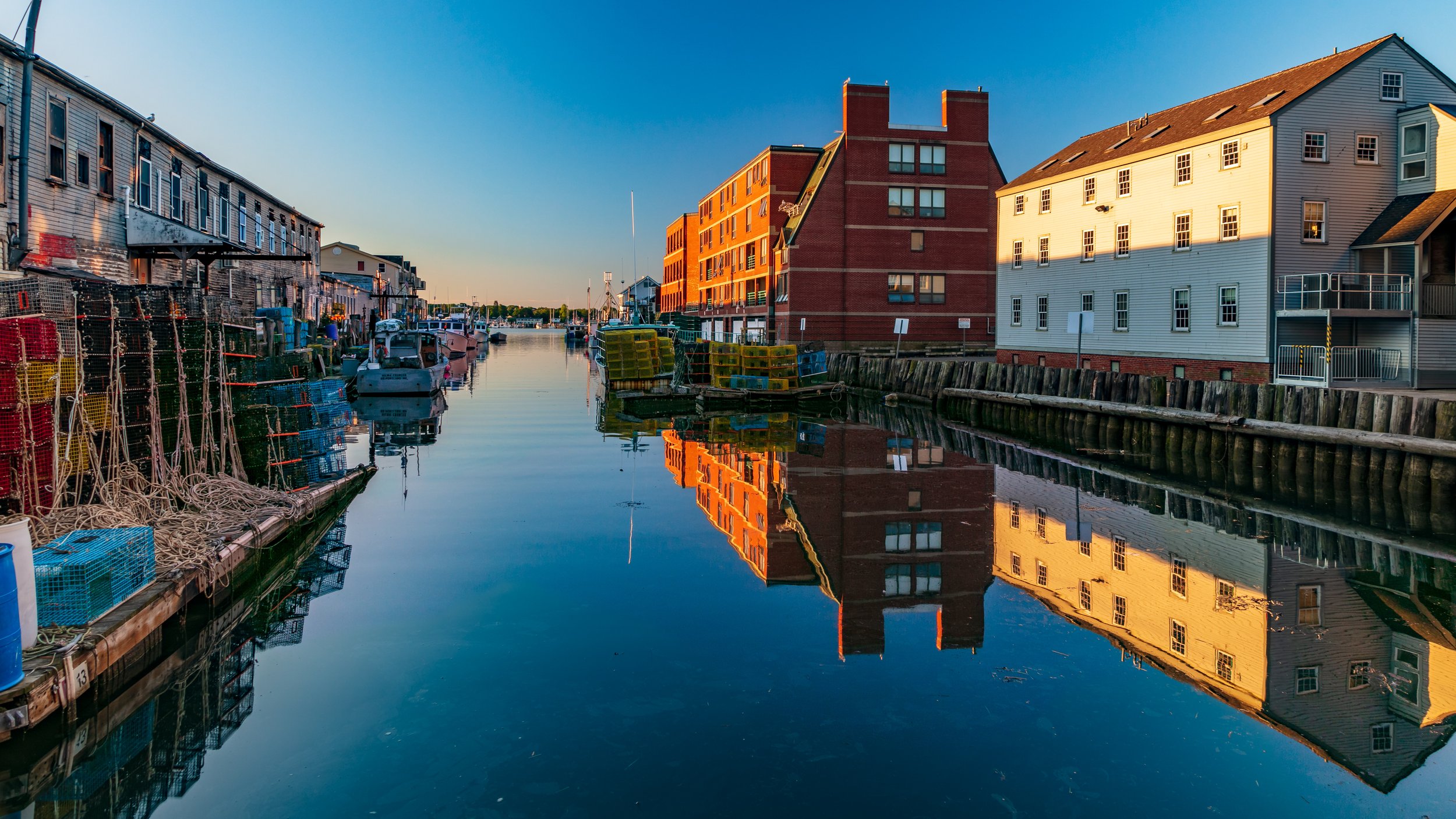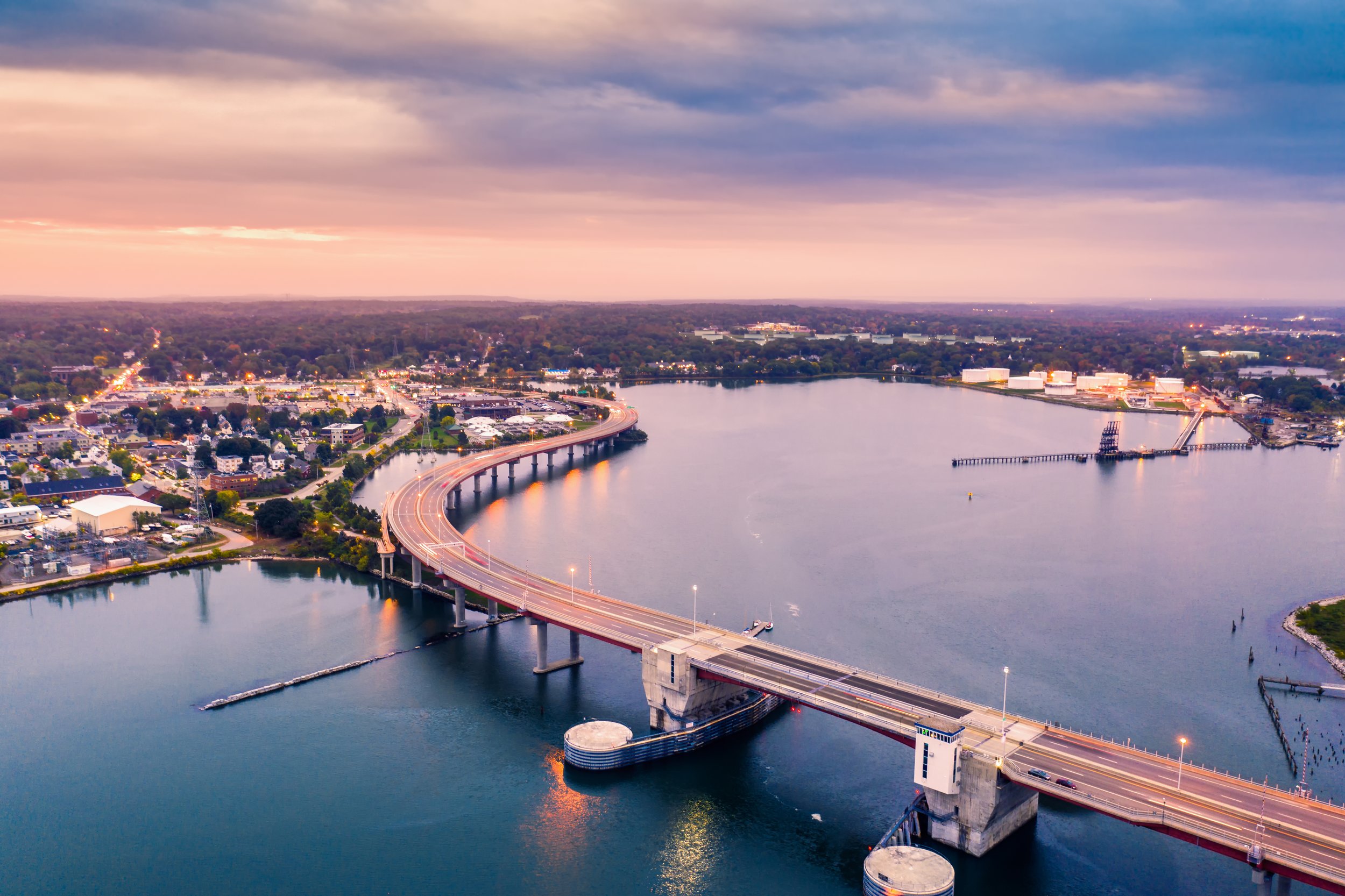
2024 PORTLAND AND SOUTH PORTLAND CHALLENGE
Neighboring cities sharing a port on Casco Bay, one of the fastest-warming bodies of water in the world.
The Envision Resilience Challenge is headed to Maine for the fall of 2024. The focus of this year’s design studio? Portland and South Portland. The participating universities in the 2024 Challenge are Cornell University, Harvard University, University at Buffalo, University of Maine Augusta, University of Michigan, University of Virginia, Yale University and the program’s first international partner, University of Toronto.
With a rich maritime culture and legacy and a diverse coastline ranging from sandy barrier islands to dramatic rocky shores along the Gulf of Maine, the state of Maine has experienced the ebb and flow of changing coastlines, warming waters and evolving industries throughout history. This is particularly true for Casco Bay, a watershed stretching 1,000 square miles made up of 785 islands. Its historic working waterfront, which has carried the industries of oil, shipping, cruise liners and fishing, is home to two of Maine’s biggest cities: Portland and South Portland.
Like coastal communities around the world, Portland and South Portland are at the forefront of the fight against climate change. The Gulf of Maine is warming three to four times faster than the global ocean average, sea levels in the state have been rising at a rate that is three to four times the global average and extreme storm events are becoming more and more frequent, as made evident by the winter 2024 storms that flooded the two cities and set record high tides.
During a January storm, downtown Portland registered a high tide of 14.57 ft MLLW (mean lower low water) in the downtown port area, surpassing a February 1978 record. Historic Willard Beach fishing shacks were washed away during the storm and several downtown piers including The Maine State Pier, Portland Pier and Union Wharf were all temporarily closed. The storms resulted in $20 million in damage to public infrastructure. While leaders have been weaving resilience into long-term planning for several years, there is renewed urgency to solve
these challenges. The back to back storms have put the reality of sea level rise and increased storm strength and frequency at the top of concerns for coastal Maine communities.
How will the communities prepare for and adapt to a changing climate? How can student design thinking inspire community-centric, incremental change that leads to equitable and resilient outcomes? How might the process of envisioning resilient climate futures help business owners, fishermen, families and residents consider adaptive waterfronts that embrace healthy, sustainable and equitable systems around water? How can a design studio reimagine the social, ecological and economic relations embedded in design to challenge the status quo and meet the needs of the community?
Selected Sites:
South Portland
Portland
Portland
The city of Portland has experienced an urban renaissance in growth and renewal that has actually been evolving over a 10-year period. City leaders have encouraged opportunities for economic development but policies have often been in direct conflict with more sustainable strategies for zoning and the growing advocacy for environmental concerns at both the city and state level. Nonetheless there are many institutions and agencies now actively working to find the balance between supporting economic and working waterfront goals with more rigorous regulations that protect Portland’s resources in the face of climate change.
Portland has become a popular destination for relocation given its natural beauty, coastal access and cultural amenities. In the past few years since the pandemic, this added population has resulted in stress to the housing market.
Within the core of the city of Portland and Casco Bay there are a number of sites now under consideration that offer an opportunity to investigate new sustainable models for solving Portland’s many challenges at this next chapter in the city’s growth.The Department of Planning and Urban Development comprehensive plan, Portland’s Plan 2030, can be found here.
South Portland
From whale oil to wood to coal to oil, South Portland has evolved as an energy hub and now the question is, what comes next?
The City of South Portland is in the midst of a Comprehensive Plan update, a process which began in 2021 and is expected to be completed in 2025. A Comprehensive Plan Committee was formed by the City Council to oversee the multi-year process, which asks “What kind of place should South Portland be in the future? What should we protect, improve or enhance in our community?”





